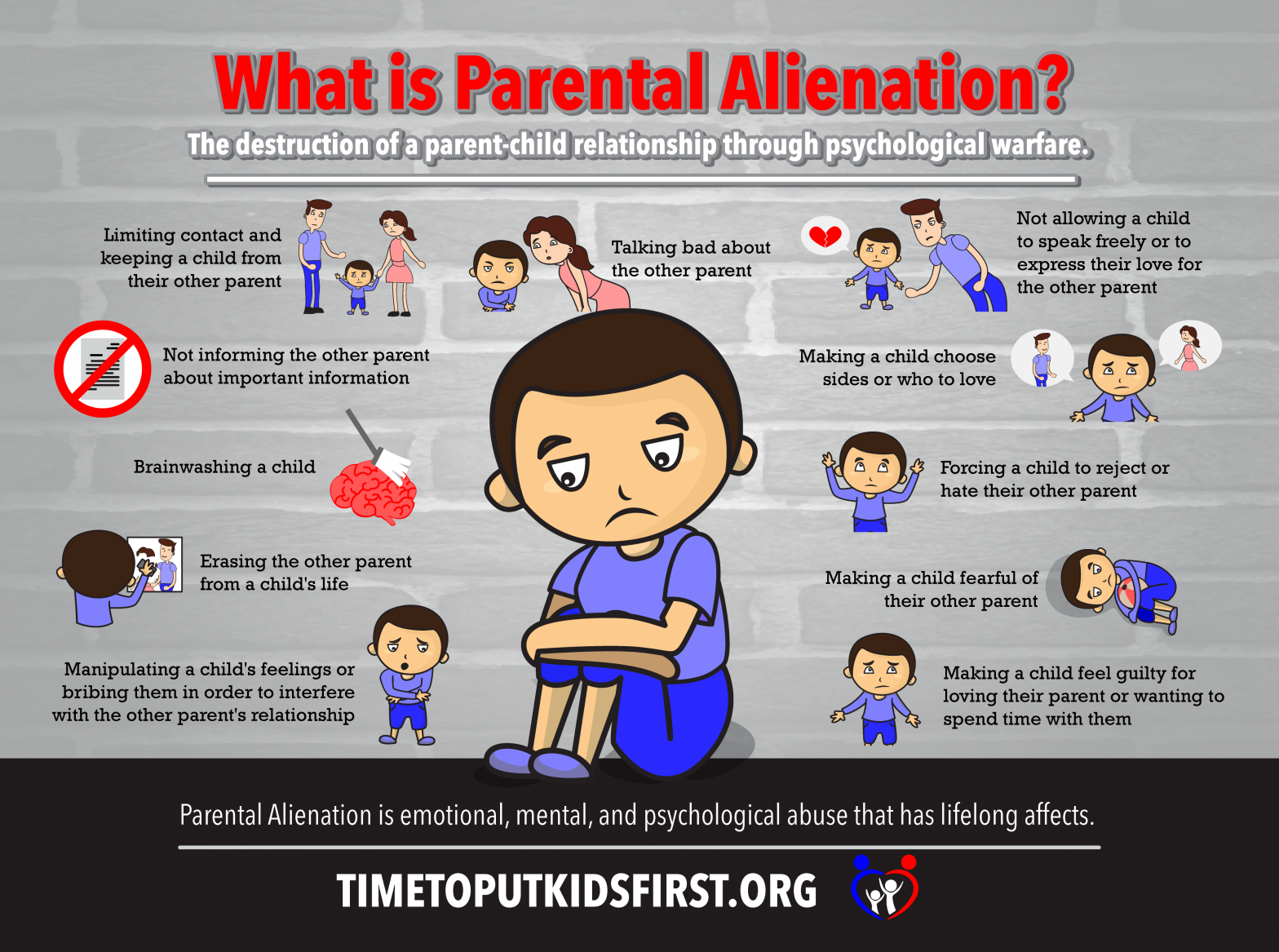Divorce can be a challenging time for families, especially when tensions run high between parents. In some cases, this tension can lead to a phenomenon known as parental alienation, where one parent tries to distance the child from the other parent. Parental alienation can have significant short- and long-term effects on the children involved. This article aims to explore the concept of parental alienation, with a focus on the role of ambivalence in these cases.
1. What is Parental Alienation?
Parental alienation is the psychological manipulation of children by one parent to distance them from the other parent, often during divorce or separation. It can range from mild to severe, and involves tactics such as constant negativity towards the targeted parent, blocking communication, and limiting visitation time. Parental alienation is more prevalent in highly contentious divorces and can have a lasting impact on the children involved.
![]()
2. The Effects of Parental Alienation
Research has shown that children subjected to parental alienation are at risk for various negative outcomes. The more severe the alienation, the higher the risk for issues such as substance abuse, depression, anxiety, relationship difficulties, impulse control problems, and low self-esteem. These effects can persist into adulthood and impact the individual’s mental health and overall well-being.
3. Understanding Ambivalence
Ambivalence is the experience of having mixed feelings or conflicting emotions towards a person, object, or situation. In the context of parental alienation, ambivalence is a normal and expected part of the parent-child relationship. However, in cases of parental alienation, ambivalence is denied or suppressed, and the child is led to believe that one parent is entirely good while the other is entirely bad.
4. The Denial of Ambivalence in Parental Alienation
Denial of ambivalence is a hallmark of parental alienation. Children who have been alienated often struggle to express any positive feelings or qualities about the targeted parent. They may only be able to provide negative attributes or backhanded compliments when asked to describe the targeted parent. The lack of ambivalence is reinforced by the alienating parent, who encourages the child to believe that their negative feelings are independent and justified.
5. Case Example: Amy’s Clinical Interview
In a clinical interview with Amy, a child affected by parental alienation, it becomes evident how the denial of ambivalence is manifested. Amy is unable to list anything positive about her mother and only provides negative attributes or backhanded comments. She has internalized the belief that her mother lacks empathy and is unable to recognize any positive qualities. Amy’s lack of ambivalence is further reinforced by her father, who supports her in denying any previous positive experiences with her mother.

6. The Influence of Older Siblings
In cases of parental alienation, older siblings often play a significant role in influencing and programming younger siblings. They serve as monitors and prevent any “relapses” in the younger children’s interactions with the targeted parent. Amy’s influence on her younger siblings, Stacey and Michael, is evident in their justifications for non-visitation and their negative perceptions of their mother. The older siblings’ programming perpetuates the denial of ambivalence and reinforces the alienation.
7. The Psychological Impact of Denying Ambivalence
Denying ambivalence in cases of parental alienation can have profound psychological effects on the children involved. It prevents them from developing healthy attachment patterns and leads to low self-esteem, trust issues, and an increased risk of mental health problems. The inability to trust oneself and others, as well as the internalization of negative attributes, further contribute to the long-term negative consequences for the child.
8. Theoretical Perspectives on Ambivalence
Ambivalence has been studied and theorized by various psychologists, including Eugen Bleuler, Sigmund Freud, and Kurt Lewin. They have explored the coexistence of positive and negative feelings towards the same person or object and its impact on individual development. In the context of parental alienation, Freud’s concept of ambivalence as the simultaneous existence of love and hate towards an object is particularly relevant.
9. The Role of Defense Mechanisms in Denying Ambivalence
Defense mechanisms, such as denial and splitting, play a significant role in denying ambivalence in cases of parental alienation. Children who have been alienated often resort to splitting, where they view one parent as entirely good and the other as entirely bad. This defense mechanism helps them cope with the conflicting emotions and maintain a sense of stability in their beliefs.
10. Recognizing and Addressing Parental Alienation
Identifying cases of parental alienation can be challenging, as the lack of ambivalence is often deeply ingrained in the child’s belief system. Mental health professionals and legal experts should be trained to recognize the signs of parental alienation and take appropriate steps to address it. Early intervention and therapeutic interventions can help mitigate the long-term effects of parental alienation on children and promote healthy parent-child relationships.

11. Legal Implications and Custody Recommendations
Parental alienation has significant legal implications, especially in custody disputes. Courts need to be educated about the dynamics of parental alienation and consider the presence of ambivalence as a defining characteristic. Custody recommendations should take into account the impact of parental alienation on the child’s well-being and prioritize the reestablishment of a healthy relationship with the targeted parent.
12. Conclusion
Parental alienation is a complex phenomenon that can have significant long-term effects on children. The denial of ambivalence is a key feature of parental alienation, where children are unable to express mixed feelings or positive attributes about the targeted parent. Recognizing and addressing parental alienation requires a multidisciplinary approach involving mental health professionals, legal experts, and the family court system. By understanding the role of ambivalence and its denial, we can better support children and families affected by parental alienation and promote healthier parent-child relationships.
